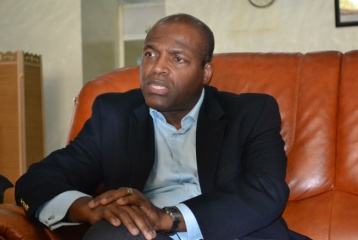IFC backs South Sudan’s non-oil revenue plans
By Julius N. Uma
February 16, 2012 (JUBA) — Jean Philippe Prosper, the International Finance Corporation (IFC) director for Eastern and Southern Africa has
said South Sudan needs a vibrant private sector, if the country is to
realize a meaningful transition from reliance on oil revenues to
non-oil resources.

development institution focused exclusively on the private sector in
developing countries.
Addressing the media at Juba airport after a two-day visit to Juba,
the South Sudan capital, Prosper lauded the government’s drive to
promote the private sector, which he said will enable citizens access
jobs and diversify the country’s economy to avoid heavy dependency on
oil.
The IFC director, who held meeting with South Sudan’s vice president,
Riek Machar and other key government officials further, reiterated the
institution’s plan to make an impact in private sector development,
citing facilitation of public-private partnership especially in the
development of infrastructure and social services as key.
“We held meetings with the Ministry of Electricity and Dams. As you
know, power is a critical issue in Juba, and indeed, the whole of
South Sudan, and we hope to assist in facilitating the requisite legal
environment and finance for power projects,” said Prosper.
Another public-private partnership possibility, he noted, was
discussed between the IFC and the health ministry, with future plans
of the institution’s involvement in developing the pharmaceutical
supply chain, hospitals and training of medical personnel.
Also discussed during his two day visit, he disclosed, was IFC’s
assistance in the establishment of the first-ever cement plant in
South Sudan, which he said remains crucial for infrastructural
development. The move seeks to cut down the high cost involved in
transporting cement into South Sudan from neighboring countries.
Last week, South Sudan’s finance and economic planning ministry
announced it had launched a tax campaign that seeks to expedite the
country’s transition to non-oil revenue.
The initiative, the finance ministry said in a press release, aims at
increasing non-oil revenue collection by 300% within a six-month
period.
(ST)
